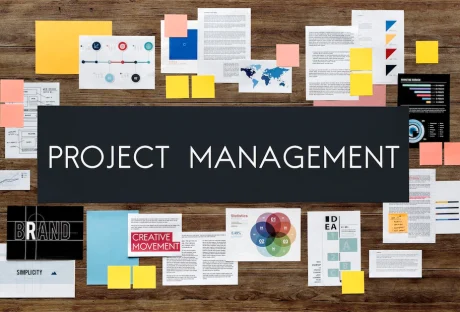What is Data Analytics? The word big data has been the buzzword for years now. Whether the data being produced by an individual or the large-scale enterprise, every phase of data requires to be analyzed for benefitting from its Data is gathered from various sources and categorized to analyze different behavior patterns.
The question arises – How do we use that data? That is where Data Analytics comes in to enhance the productivity and business gain.
Here are 4 main reasons which signify the need for Data Analytics:

After researching the fact this has been seen that Data Science is a great field to enter right now. Above all the demand for data science is high. Even more, you can get data science jobs easily once you are done with a bachelor’s degree. Below I am going to discuss the 4 main reasons that will signify the requirement for Data Analytics.
Generate Reports
Reports are created from the data and are passed on to the respective teams to further action upon for benefits in business.
Gather Hidden Insights
Hidden information from data is gathered and then analyzed as per the business requirements.
Perform Market Analysis –
Market Analysis can be done to know the strengths and weaknesses of counterparts.
Improve Business Requirement
Analysis of Data helps in improving business as per customer requirements and experience.
Reasons to consider data analytics course:

Well, the Data Analytics course has some significant benefits. Furthermore, the Data Analytics course will enable you to stay in such a domain where you can easily get significant and relevant working experience. Here are the reasons why the data analytics course needs to be considered.
1) Data analytics is important for organizations
A sudden rise in data is changing industries. Businesses big or small – are now looking forward to their business decisions being based on data-led comprehension. Data specialists have a huge impact on business strategies and marketing tactics.
2) Gain mastery in Data Management Technologies

The first and foremost benefit of getting a master’s degree in analytics gives you the opportunity to become proficient in data management technologies that are essential to know. These technologies are quite hard and challenging to learn outside of regular work hours if your current job doesn’t already need them. Having an expert teach these technologies is the most straightforward way to gain mastery of them.
3) Job opportunities on the rise
The demand for data analytics is on the rise thus creating great job opportunities for individuals within this field. In today’s time, it is nearly impossible to find a brand or company without a social media presence. Shortly, every company will need data analytics professionals. So getting a master’s degree in data analytics is a wise career move that has a destiny in business.
4) High pay scale for professionals of data analytics
As time passes, and one gets more experience, the salaries can rise to between £30,000 and £35.
Do you know the entry-level salaries for a data analytics professional range between £24,000 and £25,000?
5) Work opportunities in a spectrum of businesses
As the requirement for big data has increased in almost every business today, one can decide to work across wide-ranging areas, including business capacity, sales, marketing, finance, data quality, data assurance, and more.
Completing a Master’s Degree in Data Analytics with project experience adds greater credibility and makes you readily employable. It also opens up a window of possibilities with jobs ranging from a statistician to a Data Architect. Shape your career effectively with a Master’s degree in it.
6) Enter An Exciting and Future-centric Field
Undoubtedly, Data Science is an incredible and exciting field of study. If you are getting a master’s degree, you will get a more significant chance in data science than in your undergraduate studies.
It means you must explore significant topics that you have yet to have a chance to explore. In this way, you can find an expertise area that intrigues you.
If you think that data scientists are involved in the right way, then there are things that you must know. This includes things like AI, predictive analytics, and self-driving cars. This compelling project will help you determine what will work within five to ten years.
In this case, a master’s degree will also help you develop the skills that enable you to pursue data science. In this regard, you also think about a master’s degree as a tool you can easily use as your future proof throughout your career.
7) You Can Learn Online
There are several benefits of studying for a master’s degree in data analytics. In this case, it will offer you your future career. Aside from that, it gives you a significant and remarkable chance to learn quickly from the entire online environment.
Not all colleges and universities offer master’s degrees in data science, but alone, you can do it in a fully online course. However, this is becoming a more popular option. You will have several other opportunities to get a master’s degree.
In addition, several online programs are asynchronous; apart from that, these programs don’t have a set of course schedules. It will give you further flexibility in taking courses in the order most suitable for you.
8) Data Science is a Great Career Choice
In recent times, several excellent reasons will help you launch a career in data science. Above all, this is a fascinating area with endless prestigious and lucrative opportunities to pursue.
In addition, you will encounter such a skills shortage in the field, which will be worth providing significant thoughts on. Here, you can get multiple benefits to obtain a master’s degree in data science.
There are several fields of data science and other specializations beyond this. While looking for a master’s program, it is wise to consider what areas of interest you want most.
In Conclusion
I have discussed why it is essential to study Master’s Degree in Data Analytics above in this article. In this case, pursuing a master’s degree in data analytics will open new doors to careers and higher income levels. This happens when the thought is possible.
There are several fields of data science and other specializations beyond that. It is wise to think about the areas of the field that interest you the most. Doing this will also help you find potential and vital programs that fit your requirements.
I hope you find this article helpful. If you have queries, please comment below!
Read Also About:
- Having Business in Foreigner Country, Advantages and Disadvantages
- 5 Little-Known Founder Habits To Advance Your Career & Personal Life
- Delegating And Prioritizing: Tools For Managing Multiple Scheduling Demands























